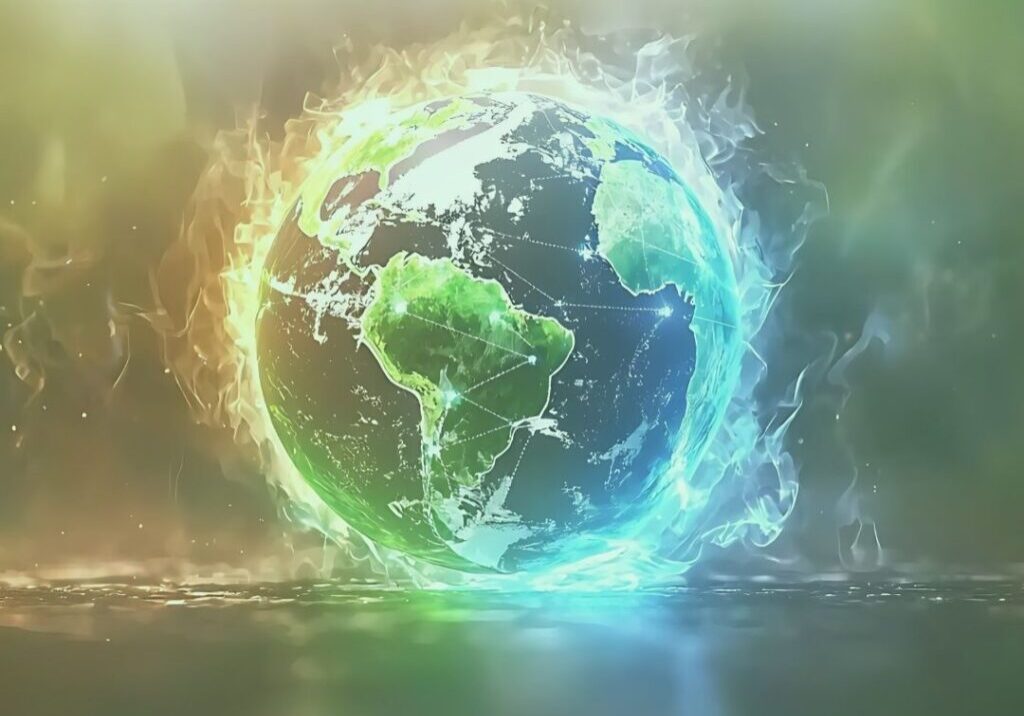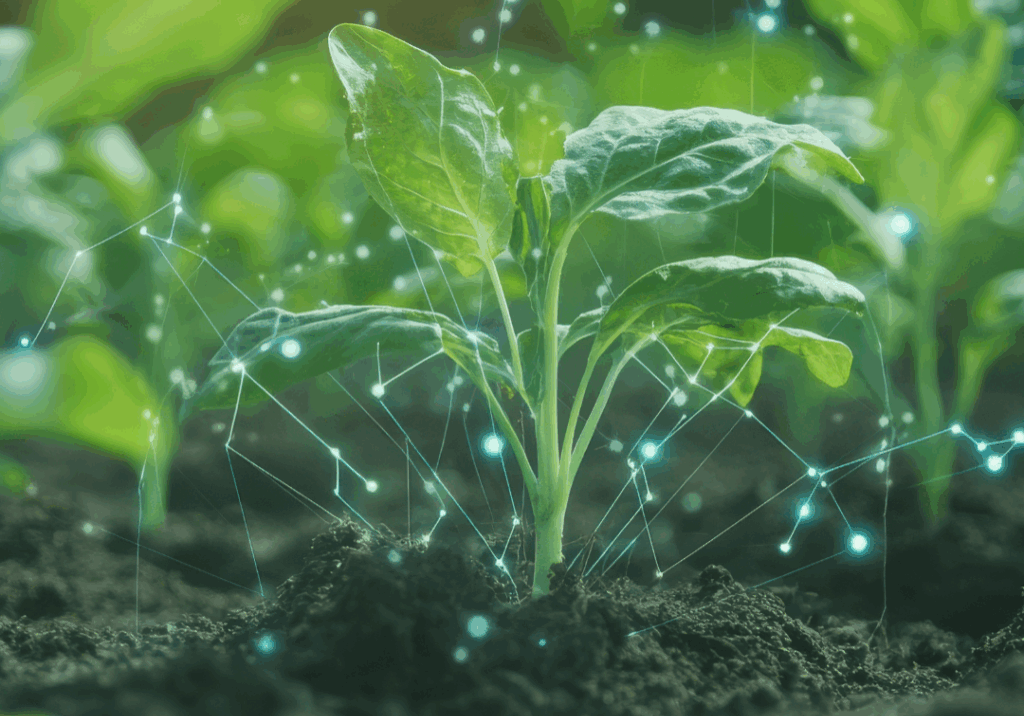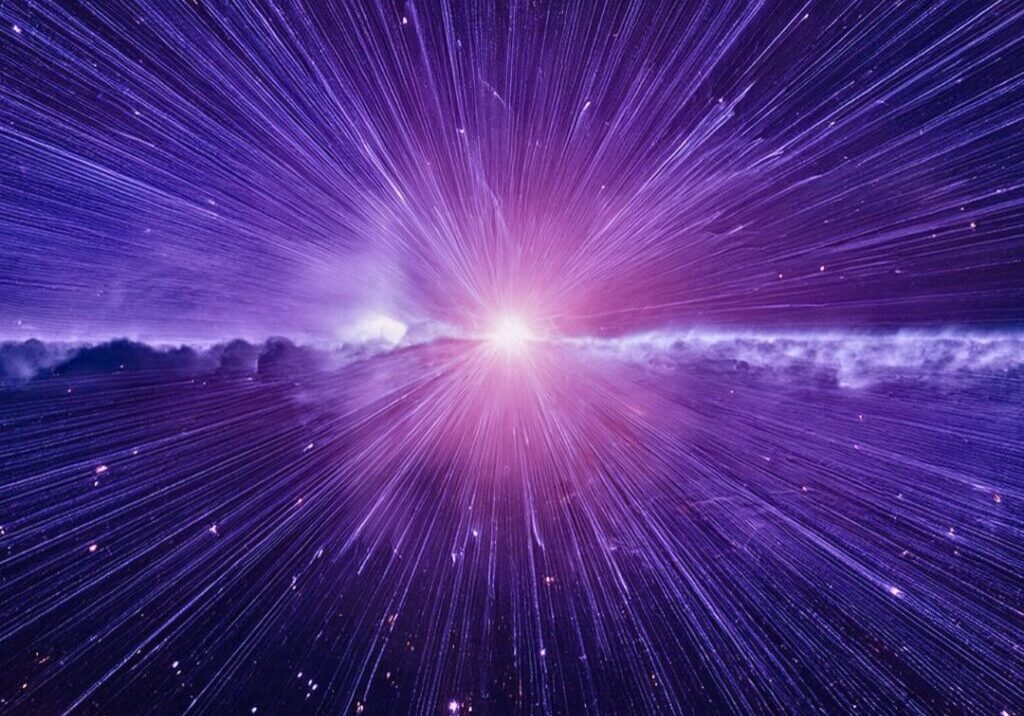Dust Unto Dust in the Ocean Froth
A kelp forest, hidden away in the Atlantic waters, boasts a fading form— an octopus, pale and pearled from the wear of her existence. She flutters with the waves, her eyes savoring her last glimpse of the ocean hues. Thus closes My Octopus Teacher, a documentary showcasing the encounters— or perhaps, a pas de deux— between filmmaker Craig Foster and a wild common octopus in False Bay, near Cape Town, South Africa. Over the course of nearly twelve months, Foster painstakingly observes her movements as she pursues food, is pursued as food, and dances in the underwater realm.
Her life is short, precarious, and fragile. She, in all her unstable, transient numinosity, completely dazzles Foster. He marvels at her every twirl. In one of their many interactions, Foster comes face-to-face with the octopus. In a moment of brave curiosity, she extends her tentacle towards his hand; time slows. All is suspended, stripped away, silent. What remains is this meeting point between two grains of God-dust. The viewer sees a man in awe, transfixed by a tenderness for creation, and with a creature whom he sees and knows intimately in encounter. His gaze, at first panoptical, dissolves into cautious reciprocity. He looks towards her as a parent accompanies his child on the playground. This is a scene of play—pure, unbridled play.
Such “play” has evaded me since the start of 2020. Since last March, I seldom graze hands with strangers—except at the supermarket checkout, in a hasty exchange of paper receipts. These encounters, once populated with half-smiles and warm eyes, have devolved into frantic recoils of averted eyes and hidden faces. I choke out an apology through my mask—an apology for the encounter—and rush away to my car, my sterile refuge. In the early stages of the pandemic, I, like my fellow shoppers, was stricken with fear. Like the octopus, I found myself in uncertain waters— the market is awash with shoppers, begging for paper wares, clamoring by check-out aisles, desperate for pocket change and a swift return to their nests. We each threatened the other, complicating the boundary between predator and prey. Accidental interaction was volatile, an intimate threat to one’s health. To brush past another was to incur risk, and to graze fingers, like Michelangelo’s Adam and God, portended pestilence, even death—not creation. We were skittish in these early days of the pandemic— and as cases continue to fluctuate, we remain so.
In the documentary, Foster’s encounter with the octopus was delicately mediated by a sensitive hand. On a few occasions, however, he would fumble, drop his camera lens or other equipment, and startle her. She fled, wedging herself beneath the rock caverns. She too could be skittish.
And yet, she returned to him. Numerous times.
I too, return, to the market, to the strangers, to a different kind of sea.
Early in the pandemic, each of these trips warranted an hour spent disinfecting cartons, cans, and cereal boxes— and hours more of a sobering guilt and worry, for myself and for the eyes I had so quickly evaded. I looked for God in the parking lot and in the frenzied aisle folks. I wondered if God watched as I, as we, played the tenuous game of death-evasion. I wanted to dance, to touch newness, to marvel at the strange, like the octopus. Instead, I was gripped by the fact that I could die, I would die— perhaps today, tomorrow, the next. This fragility, our truth, can be easy to ignore. The holy sacrifice of the Mass has been softened by the drone of Sunday consumption— football, couponing, the funnies. We have so easily settled into ignorance, purposeful or otherwise, as our personal life raft, to complement our bubbled nests. But neither nest nor paper offer respite now. I think of how the newspaper, populated with pages of death after death, obliterated all sense of security. After a year in a pandemic, not much remains of my self-assuredness. I am without refuge— and I imagine I am not alone.
Questions of theodicy do not hold as much relevance to me as do ones of divine proximity. I wonder, what is God’s vantage point? Is God sitting on the park bench, looking up from the daily paper as I rush about in frantic life-living? Is God asleep in the car? Or is God here, breathless from chasing me across the playground, following me down the slide and crying when I skin my knee?
This question haunts me at all levels of my being. During a global pandemic, I feel it gnawing at the sinews of my biology. I not only know this inquiry theologically— it is nestled into the crevices of ontological restlessness. There is no escaping it.
Foster experiences a gnawing, too. He shares a moment of particular rawness when visiting the octopus one day. She, on that occasion, was targeted by sharks, which tore at her flesh. Foster divulges the agony of bearing witness— he felt compelled to intervene but could not. His intervention would, it appears, disrupt the inevitable. And yet his eyes well, his heart sinks: Foster is there, far enough to watch the war commence, but close enough to weep. He not only mourns her scars, but also experiences them: “I felt very vulnerable, as if somehow what had happened to her had happened to me in some strange way.” And again, “this almost felt…like I was…going through a type of dismembering.”1
Is this interspecies solidarity? Or is it a tender story, analogous to the created world and God? Perhaps it is both. We can see ourselves in the octopus— skittish, yet pushing onward—and in Foster—cautious, and agonized by our lack of control. Their interactions illuminate the harsh reality of relational entanglements: true encounter begets woundedness. We do not emerge from such entanglements unscathed.
Foster’s struggle over his degree of involvement, or interference, in her life are noted throughout the documentary. On occasion, he concedes to his care, and brings her food. Yet these occasional in-breakings are not satisfactory, for the viewer or for Foster. His life has become a balancing act, juggling his desire to respect the inevitable, and his deep affection for the fragile creature. We may feel emboldened to egg him on, to encourage his intervention, and endorse his interference. Perhaps this is another affliction that has come to the forefront, more troubling than the din of weekend anesthetics. Is presence, mere presence, meaningful?
In the time before, I met others in a haze of ambient stress, flitting from event to event, desperate for a retreat inwards. I, we, had been granted that desert, and I emerge now desperate for contact. After having spent time in this desert, I have come to know my ingratitude, how quickly I took for granted the presences in my life as wellsprings that would always be near— now they cannot be, and for good reason.
The plight of octopus and Foster cuts deeper than I can bear. I cannot retreat to my own hiding place, my underwater refuge, or busy myself with the gleam of oblivion. The pandemic has obliterated all hiding spaces— or, at the very least, their structural integrity. I can no longer avert my gaze from a suffering that is, in truth, all too familiar to me. In meeting the eyes of mollusk and man, I wonder again, what of God’s presence? Is God a safe, sterile distance from us as we writhe? Or, in meeting our gaze, does He seize and envelope us, wounds and all?
I sense that attending to presence as a good, a gift, and ultimately, all we have, can bring us into a clearer sense of God’s embrace. Presence is our one consolation, but what a consolation it is. To attend to the presence of God, then, we must first regard the historical entry of God into creation— the Incarnation. Danish theologian Niels Gregerson regards the historical in-breaking of God as deep incarnation, or “an incarnation into the very tissue of biological existence, and system of nature.”2 His approach to the Incarnation is a radical extension to all ends of creation. Christ’s death, then, is an “icon of God’s redemptive co-suffering with all sentient life.”3 Extrapolating from this, Elizabeth Johnson asserts that Christ’s flesh “connects with all humanity, all biological life, all soil, the whole matrix of the material universe down to its very roots.”4
Our existentially fraught limbs bubble with presence, then. As does the torn flesh of the octopus, of the pyramid shark, of the coral. Does this presence matter to the octopus? Johnson responds: “The cross gives warrant for locating the compassion of God right at the center of the affliction. [The creature] does not die alone.”5
Does presence matter to us, when we are racked with pain? I consult my own wounds for this answer, and I find myself crying out—for peace, for my parents, for mystery. For presence. Presence doesn’t cure the pain, but it sees it, and sees me. God’s loving presence to creatures in their suffering, argues Johnson, is “one of the most significant things theology can say.”6 God, then, does not just cry for our pain. God buries Godself in the pain, accompanying creation through the aches of biological inevitability. God does not hide.
——————————————————————————-
The life span of a common octopus is relatively brief. Our tentacled friend begins to fade just before the year’s end. Her twilight is spent mating— a brief moment of union— and she uses the last of her strength to lay eggs. The rippling blues of the water suspend the effervescent constellation of new life— dust unto dust in the ocean froth. Soon after, she sheds her flesh, her limp body unraveling in the water. Every day, she fades further, and every day, Foster visits her. He beholds the octopus, even when she, still alive, is feasted on by creatures scavenging the sea floor. He cannot tear his eyes from her form, even as she is torn apart. His sustained gaze does not strike me as morbid. Rather, Foster is attuned to the sacrality of beholding death. He cannot hold her, for to do so would interrupt the inevitable cycle of the ocean meal. He quells his fitful protests, and instead chooses to keep her company.
Eventually, she is carried off by a shark, taken away “into the misty [kelp] forest.” It is unclear if her last breath is witnessed by Foster, or lost in the meal of which she is a part. We can imagine that he beholds her still, in his mind’s eye, his gaze remaining even when her body is no more. Johnson offers a balm to ease this departing scene: “individual creatures are not abandoned in death but taken into communion with the living God.”
Not taken away from, but taken into. Like a new communion, ushered into the divine embrace.
Before we are dust, we are joined in a meal, a meal begun at birth, scattered throughout life, and shed in death; we consume, and are consumed. The octopus knows this, teaches this, reminds us of this, as she feeds the ocean floor that once fed her. We find such wisdom not only through the octopus but also in the specks of dust kneaded into the foreheads of the faithful. In life we devour, but we too are devoured, until our final moments. Our skin and our sorrows slough, an inescapable truth of our biology and beating hearts. The invisible, yet agonizing, pangs of biological reality return us to ourselves, whispering the Lenten reminder of dust unto dust.
——————————————————————————-
During his visits to the octopus, Foster abandoned his wetsuit, oxygen mask, and diving equipment, and opted for a simpler, unburdened dive. He wanted to be close to her.
God condescends to us in the historical event of Christ. He halts the angels of Heaven, eager to rescue him—and He meets us. God’s contact is not limited to those bearing the stigmata; God is with those who carry the dull, mundane pangs of bodily being, each and every day.
As Foster notes, “the boundaries between…seem to dissolve.”
And still—Christ dies. The octopus dies. We die.
Our death is not enough to keep that holy presence from us. It is knit within us, irreversibly, marked in history.
“Something happens when that animal makes contact,” he says.
And something happens when the breathing Word makes purposeful, intentional, ever-loving contact with us, such sophisticated creatures, but creatures nonetheless. That thing is a grace, ever-present, ever-holding and beholding us.
I’m not sure when I will be near the sea again, nor when I will see an octopus, nor when I will stand in a crowded pew with the faithful, as dust unto dust. But despite this distance, I have learned from the octopus, as a living creature, a devoured creature, and a dancing creature. From her whirl I have reckoned with the deep sorrow of separation from others, and the illusion of separation from mystery, the mystery that populates the empty rooms, lying in wait of dance. I have recovered mystery from the waves, and from her dance.
The wisdom of the octopus is yours to decipher. My hope is it may be a balm in the somber days ahead. With gratitude for the lingering lessons the sea maiden offered me in my months of isolation, and in search of new teachers, I offer you these words from St. Athanasius:
“Therefore [God] placed in each and every creature and in the totality of creation a certain imprint and reflection of the Image of Wisdom…his Wisdom, in which we attain to knowledge and understanding.”7
Notes:
- James Reed and Pippa Ehrlich. My Octopus Teacher. A Netflix Original Documentary, Off the Fence, The Sea Change Project, 2020.[
]
- Niels Henrik Gregerson, “The Cross of Christ in an Evolutionary World,” Dialog: A Journal of Theology 40 , no. 3 (Fall 2001): 192-207, at 205.[
]
- Ibid.[
]
- Elizabeth Johnson, Ask the Beasts: Darwin and the God of Love, (New York: Bloomsbury, 2014), 196.[
]
- Johnson, Ask the Beasts, 206.[
]
- Ibid.[
]
- Athanasius, Orations against the Arians, 2.78, in Anatolios, Athanasius (New York: Routledge, 2004), 171. Cited in Denis Edwards, Deep Incarnation: God’s Redemptive Suffering with Creatures (Maryknoll: Orbis, 2019), 65.[
]
 View print-friendly version
View print-friendly version
1 Comments
Related Posts

The Earth Groans, AI Grows: Who Guides the Flame?
In this critical moment of planetary history, where ecosystems collapse, artificial intelligence proliferates, and human meaning trembles on the edge of uncertainty, we are faced with a profound question: What kind…


Your essay is exquisitely felt and written. I feel the conclusion: “Therefore [God] placed in each and every creature and in the totality of creation a certain imprint and reflection of the Image of Wisdom…his Wisdom, in which we attain to knowledge and understanding” warrants further exploration.
That statement…to me…is a description of the Loving Spirit of God Within (all life, matter, space, universe). Perhaps the film, and the experience of Foster, “presence” and all is a gift…an invitation…to explore that presence of inner Wisdom more deeply. Perhaps this “dog eat dog” world is both not what it was meant to be…as the book “The Fall” recieved by Michael Reccia states. Perhaps as well, that we are to extend that presence as Love Within into our daily lives…as I noted in a commentary on an essay by Ilia Delio. And then…the entire story experience of Foster may well lead us to confront what is happening with global warming…examined in the films Our Planet narrated by David Atenborogh….and five strategies he brings forward to remedy this situation. Yes magazine, in its spiring issue, notes how mankind can begin to live “ecologically”. Yet all of these bring forward the prerequisite of exploring and following the Love of God within…the Spirit of Wisdom Anthanasius puts forward. That will require deep and broad perspectives…and practices…as well as films and writings/scriptures.